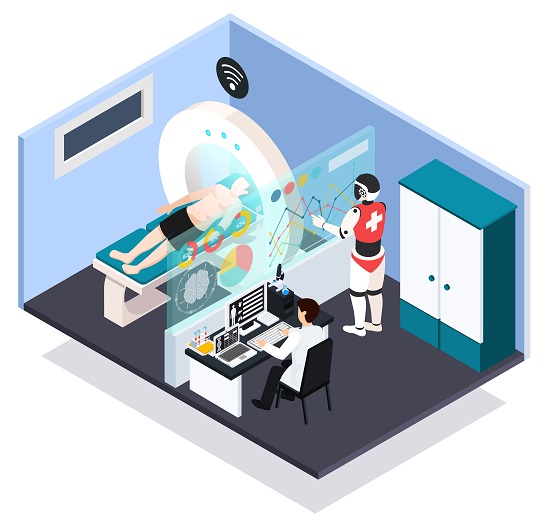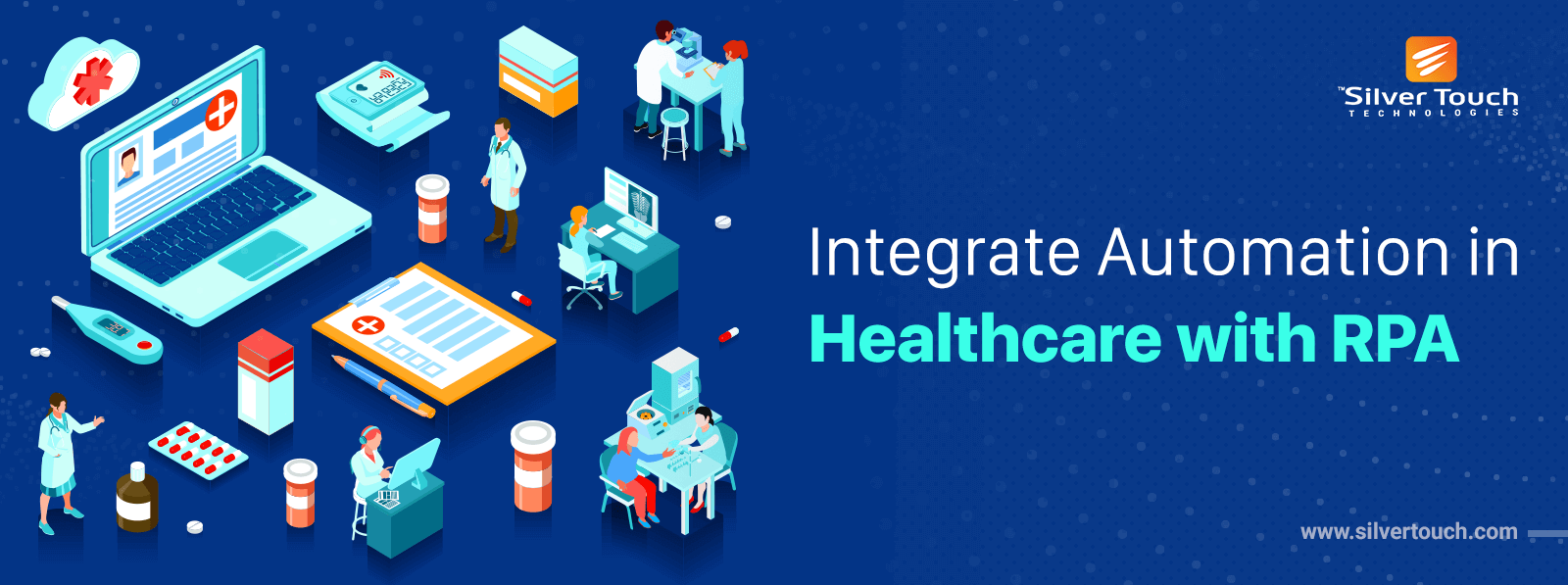Robotic Process Automation is the talk of the hour. Irrespective of the industry vertical or enterprise domain Bots are doing the jobs with the same efficiency as humans improving the performance of business process thereby adding ROI precisely.
Let’s learn more about RPA and Healthcare!
Before delving deep into the concepts and application of RPA in healthcare, let’s know what RPA is and how it helps enterprises in accomplishing the tasks with improved efficiency!
Robotic Process Automation

RPA, is the need of the hour. Since the past few months, all over the world including India, we have witnessed the pandemic spread that has affected a lot many industries and the working style. Post-Covid the RPA implementation in various enterprises has become obvious and most relevant as the companies can simply rely on bots, during resource crunch. During these types of situations, RPA comes handy to handle your front office or back-office operations including crucial processes like charge posting, auditing and claims management.
Bots can work in any environment, application, or interface, including all types of operating systems and databases. Bots simply can replicate the work done by humans. RPA is a powerful technology that enables the cognitive capability of bots to act like a person. RPAs analytical ability allows organizations to visualize logical dashboards and calculate ROI. Unlike human beings, bots can work untiringly round the clock. During this pandemic situation, bots can do most of the daily repetitive tasks like humans. Bots can act, think and analyze like humans.
RPA in Healthcare

Under the Healthcare sector, we can consider Healthcare Service Providers like Hospitals and Pharmaceutical Companies that work on the medical front as well as the research front. Moreover, the clinical research companies leading the clinical trial for drug delivery and compliance of these drugs. It is not new or healthcare is automating for the first time. Many processes are automated in the healthcare industry for years, but most of them are typically the back office operations, finance or human resource areas. This is just the tip of the iceberg. When we think of the most complex processes of the healthcare industry, bots can accomplish the task with artificial intelligence.
RPA in healthcare can improve the patient care experience, achieve cost savings, increase productivity, reduce delays, manage risks, and gain insights.
Patient management is one of the key areas where RPA can provide great relief to the service providers. RPA can lighten the load on patients or caretakers by automating the patient scheduling and verification processes. RPA can also improve the experience by attended automation for example, by authorizing the agent to solve problems based on business rules, and can automate enrollment, registration, and onboarding for patients. RPA can do wonders in the areas of prior authorization, adjudication, claims denial management, and payment and automation can reduce delays for routine cases. Bots have built-in monitoring capability, so the bot can supervise, analyze, and trigger an action based on rules, or generate reports on activities. Bots can monitor the areas and can generate the highlights on dashboard taking care of safety, quality of care, compliance and security. Authorized users can view the analytical reports on dashboard.
For any healthcare system the clinical, operational and support area are the key concerns. Medical billing, prior authorization, denials management, payment posting are few functional areas apart from patient management, where RPA can improve efficiency, productivity and reduce cost.
Conclusion:
The future power of automation and artificial intelligence on enterprises and human resources is a continuous deliberation. As per the studies, more than 33% of the staff are expressing the happy hours as bots are taking care of their work. RPA reduces the cost of repetitive, rules-based, low-value work, Improves speed, efficiency, accuracy, & productivity. During this pandemic situation, it is highly recommended to delegate the work to bots to manage the processes with safety and security.



